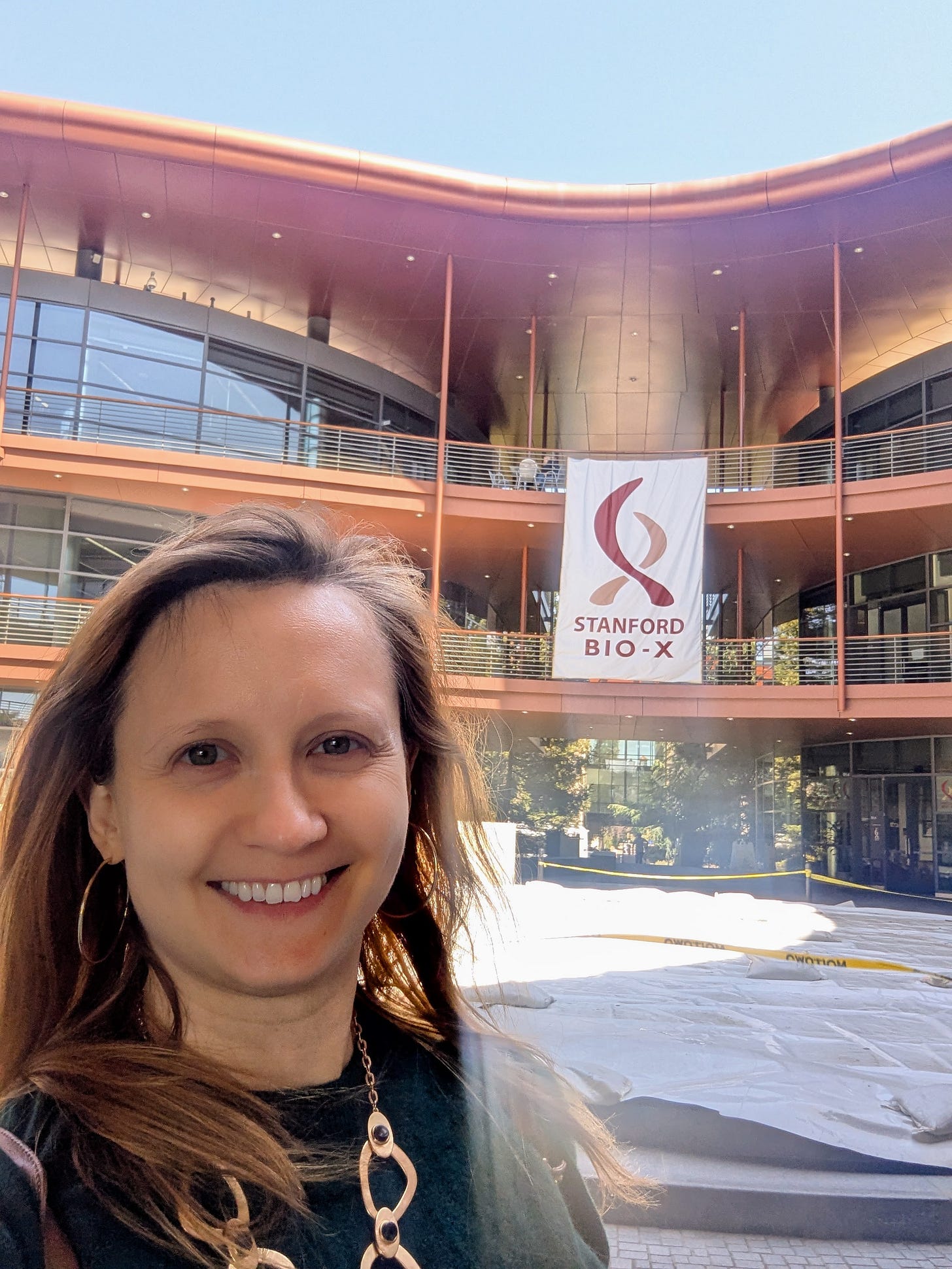Seanome @ Stanford’s Evolgenome Seminar Series
Invited talk on decoding marine “mystery genes” with hydrophobic-polar k-mers
Last week, I gave the weekly talk at Stanford’s Evolgenome Seminar Series, highlighting cutting-edge work in evolutionary genomics. I was nervous, as the series featured heroes of mine like Richard Durbin (whose textbook I studied), Katie Pollard (whose human accelerated regions I used in grad school), and Alex Pollen (whose brain single-cell RNA-seq paper and data I used in grad school). It felt like I had achieved a significant milestone with this talk.
My presentation, “Unlocking Hidden Protein Functions with a Biochemically Informed Annotation Strategy,” showcased how we’re using hydrophobic-polar k-mers and laptop-scale computation to illuminate the uncharacterized protein universe. I explained how our approach identifies potential functions in protein regions that resist analysis by conventional tools like BLAST and HMMer, and sophisticated AI approaches like FoldSeek/AlphaFold. I shared preliminary results annotating a transplant rejection immune gene in our closest non-vertebrate relative. As part of our mission to decode the “mystery genes” of marine organisms, I briefly touched on our work with Arctic clams and their neurotoxin tolerance mechanisms.
I used Slido to engage the audience with interactive questions throughout the talk, which was fun! We collaborated on questions like "How many human proteins are of unknown function?," "How many GPU years were required to train AlphaFold3?," and my favorite, a word cloud of “What protein domains do you think are in a marine transplant rejection immune gene?” This made the talk feel more integrated with everyone. The Stanford researchers asked thoughtful questions about how our computational approaches could filter the vast protein sequences search space to manageable sets for deeper analysis.
Thanks to the invitation from Stanford’s Center for Computational, Evolutionary and Human Genomics. I’m excited for future collaborations to democratize marine genomics and unlock innovations in the forgotten 99% of ocean biodiversity!




